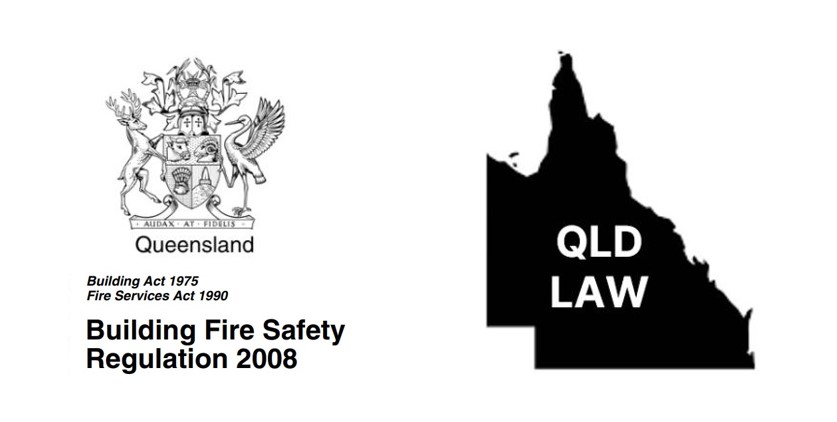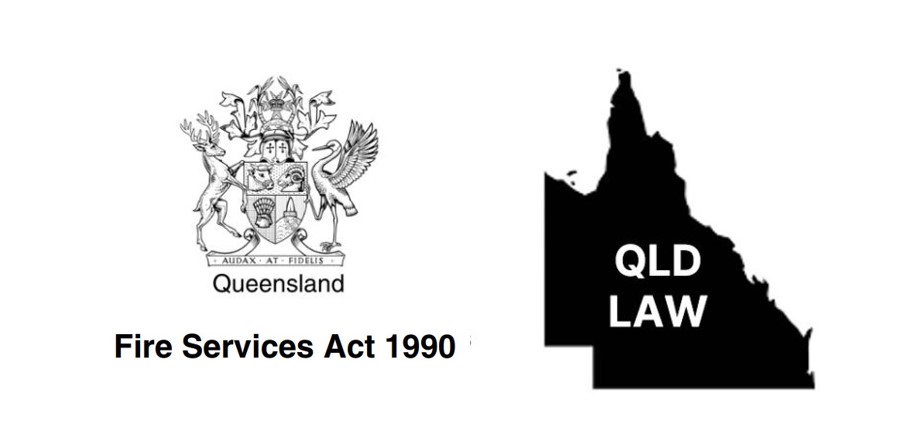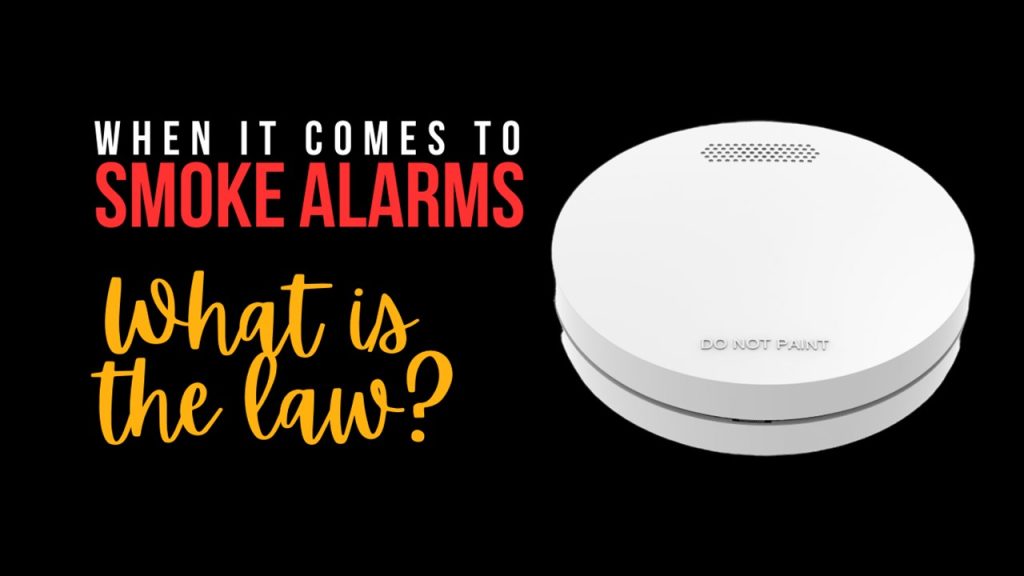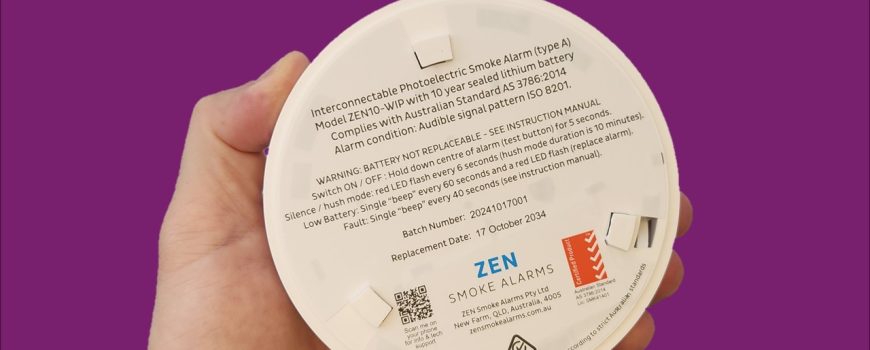If you own a home or rental property in Queensland, staying up to date with fire alarm legislation QLD is essential. The laws around smoke alarms have changed significantly in recent years, with new requirements being phased in to improve fire safety in residential properties. By 1st January 2027, all domestic dwellings in Queensland must comply with strict new smoke alarm rules.
This guide will break down everything you need to know about fire alarm legislation QLD, including the specific requirements for smoke alarms, where they must be installed, and what property owners, landlords, and tenants need to do to remain compliant.
Understanding Fire Alarm Legislation QLD
Queensland’s fire safety laws are designed to reduce the risk of fatalities and property damage caused by house fires. The two key legal documents governing smoke alarms in QLD are:
- Fire Services Act 1990 (formerly the Fire and Emergency Services Act 1990)
- Building Fire Safety Regulation 2008
These laws mandate the correct type of smoke alarms to be installed, where they must be located, and how they should be maintained. Compliance with fire alarm legislation QLD is not optional—it’s a legal requirement for homeowners, landlords, and property sellers. The goal of the legislation is to reduce loss of life by ensuring that all fire safety installations (including photoelectric interconnected smoke alarms) within a domestic building are adequately maintained.

Fire alarm legislation QLD – QLD Building Fire Safety regulation 2008
Building Fire Safety Regulation 2008
Smoke Alarm Requirements
The Building Fire Safety Regulation 2008 outlines the specific requirements for smoke alarms in residential dwellings. These include:
- Photoelectric Smoke Alarms: All smoke alarms must comply with Australian Standard AS 3786:2014 and must be photoelectric, meaning they detect smoke particles rather than relying on ionization technology. Ionization smoke alarms are no longer permitted.
- Long-Life Batteries or Hardwired Alarms: Smoke alarms must be either hardwired to the mains power or powered by a non-removable, 10-year lithium battery to ensure long-term reliability.
Where Must Smoke Alarms Be Installed?
Under fire alarm legislation QLD, photoelectric smoke alarms must be installed in:
- On every storey of a domestic dwelling.
- Inside every bedroom.
- Hallways that connect bedrooms to the rest of the house.
- If there is no hallway, then in a location between the bedrooms and the rest of the dwelling.
- For storeys without bedrooms, at least one smoke alarm must be installed on the most likely exit path.
Where Smoke Alarms Should Not Be Installed
To prevent false alarms and ensure maximum effectiveness, fire alarm legislation QLD also states that smoke alarms must not be installed:
- Within 300mm of a light fitting
- Within 300mm of a ceiling and wall corner
- Within 400mm of an air-conditioning vent
- Within 400mm of a ceiling fan blade
Incorrect placement could result in alarms failing to detect smoke effectively or triggering false alarms due to airflow interference.

Fire alarm legislation QLD – QLD Fire Services Act 1990
Fire Services Act 1990
Smoke Alarm Rules for 2022 and 2027
The Fire Services Act 1990 governs the phased rollout of new smoke alarm requirements. The most recent changes came into effect on 1st January 2022, requiring that all rental properties and properties being sold or substantially renovated must have compliant smoke alarms.
From 1st January 2027, these requirements will extend to all residential properties in Queensland, meaning every homeowner must ensure their property meets the new standards.
Key Requirements Under Fire Alarm Legislation QLD
By 1st January 2027, all homes in Queensland must have smoke alarms that:
- Are less than 10 years old and in proper working order.
- Be interconnected with every other smoke alarm in the building so that if one alarm is triggered, all alarms activate simultaneously.
- Operate when function tested, ensuring they are responsive and effective in an emergency.
- Match the existing power source—if the alarm being replaced was hardwired, the new alarm must also be hardwired.
- Be photoelectric and comply with AS 3786:2014.
Additionally, new homes and substantial renovations must have hardwired, interconnected, photoelectric smoke alarms installed.
A substantial renovation is defined within the Act (on page 90) and typically refers to major structural changes that require council approval.

Fire Alarm Legislation QLD for Rental Properties
For landlords and property managers, ensuring compliance with fire alarm legislation QLD is crucial to avoid fines and penalties. Rental properties must meet all smoke alarm requirements, and landlords have additional responsibilities regarding smoke alarm testing and maintenance.
Landlord Responsibilities
- Before a new tenancy begins, all smoke alarms must be tested within 30 days.
- All smoke alarms must be in working order, interconnected, and compliant with current laws.
- If a hardwired smoke alarm needs replacing, the new alarm must also be hardwired.
Tenant Responsibilities
- Test all interconnected smoke alarms at least once every 12 months.
- Notify the landlord or property manager as soon as possible if a smoke alarm is faulty or not working.
- Clean smoke alarms at least once a year to prevent dust buildup.
Non-compliance with fire alarm legislation QLD could result in fines for landlords, and tenants may also be held accountable for failing to report faulty smoke alarms.
Why Compliance With Fire Alarm Legislation QLD Is Critical
Queensland introduced these changes to improve fire safety and prevent tragedies. Studies show that interconnected photoelectric smoke alarms significantly increase survival rates in house fires because they detect smoke faster and ensure all alarms activate at the same time, giving occupants more time to escape.
Failing to comply with fire alarm legislation QLD can have serious consequences, including:
- Fines and penalties for non-compliance
- Difficulty selling a non-compliant property
- Increased fire risk and potential loss of life
By ensuring your home meets the latest fire safety standards, you’re not only following the law but also taking essential steps to protect your family and property.
Final Thoughts: Get Ready for 2027 Compliance
The 2027 deadline for fire alarm legislation QLD is fast approaching, and homeowners should act now to upgrade their smoke alarms. If you own a property in Queensland, make sure:
✅ All smoke alarms are photoelectric and interconnected.
✅ Alarms are installed in every bedroom, hallway, and required exit path.
✅ Alarms are hardwired or powered by a 10-year non-removable lithium battery.
✅ You regularly test and maintain your smoke alarms to ensure they function properly.
Whether you’re a homeowner, landlord, or tenant, complying with fire alarm legislation QLD is essential for safety and legal compliance. Stay ahead of the deadline and make sure your property is protected with ZEN’s high-quality and QLD compliant smoke alarms.
For the latest updates and expert advice on smoke alarm compliance in Queensland, follow our blog or contact us for assistance.
If you would like to read the QLD fire alarm legislation in full, direct links to the official government sources are provided below.
Building Fire Safety Regulations 2008 (current as at 01 July 2024)
Fire Services Act 1990 (current as at 01 July 2024)

Want to know more? Watch our ZEN Smoke Alarm YouTube channel or call us on 0478 596 402 today
We love talking smoke alarms!
ZEN Interconnected Smoke Alarms
New Farm, QLD, 4005

